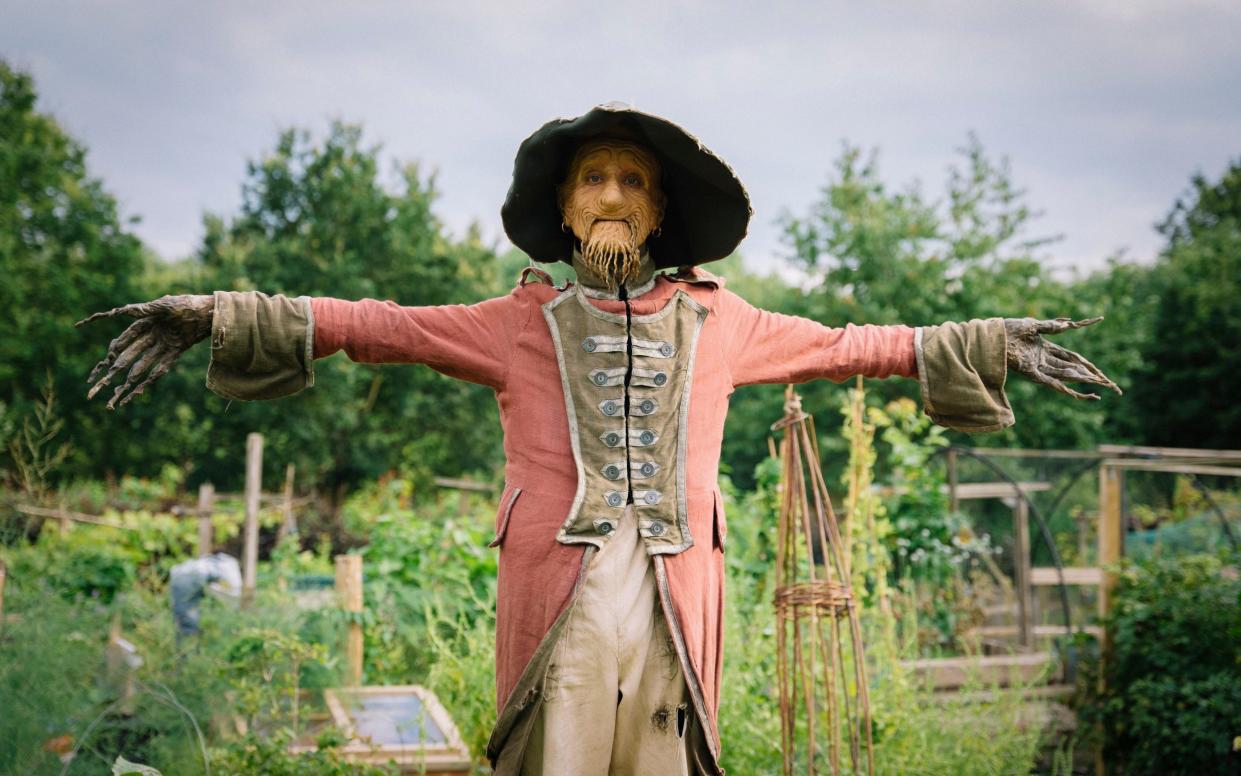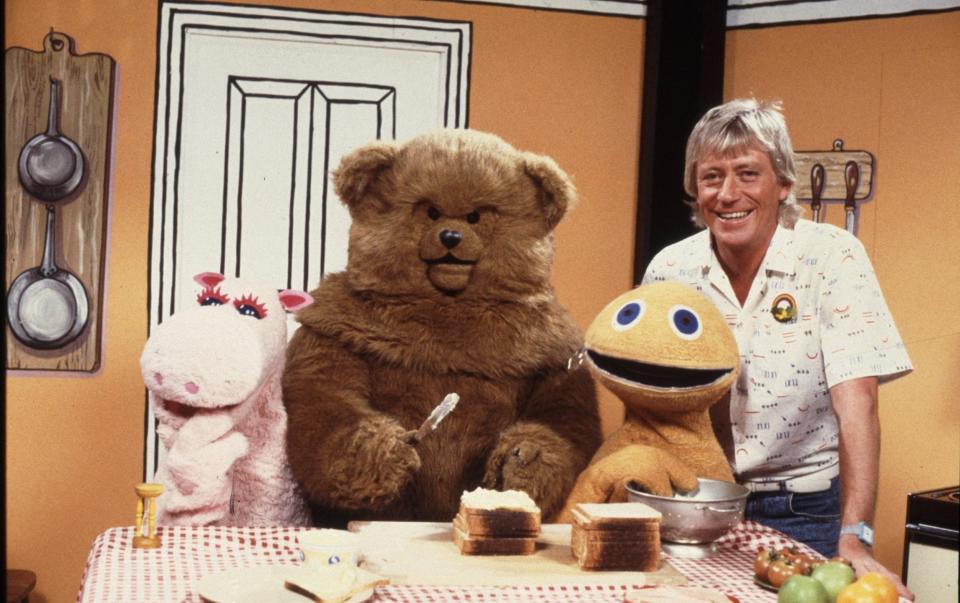Grow up, Worzel Gummidge prudes – a little innuendo is good for children

Worzel Gummidge fans have been getting their turnips in a twist over a new episode of the Mackenzie Crook reboot of the beloved children’s TV show. A special Christmas instalment of the series, which chronicles the adventures of a chatty scarecrow in bucolic rural England, has been accused of Carry On…levels of nudge-nudge innuendo.
Viewers took to social media to complain about the unusual frequency of suggestive bird names, including the “red-knobbed coot” and “penduline tit” in a bird-watched themed instalment called “Twitchers”. In one scene, a bird fancier tells a fictional news reporter he “travelled 350 miles to see a blue-footed booby”.
Worzel’s Twitchers has created bit of a flap on Twitter. But it is worth asking who the real boobies are in this scenario. Is it Crook, who has brought a cackling glee to the series, in which he writes the script as well as donning an iconic straw hat to portray Worzel? Or is it those who feel children’s television should be a safe space with padded corners, stair-gates as far as the eye can see and with absolutely no space for adult humour?
Kids’ TV, it should be remembered, has a long tradition of sneaking in grown-up gags. From beloved Seventies mainstays such as the Magic Roundabout all the way up to Ben and Holly’s Little Kingdom on Channel 5, children’s entertainment has always excelled at appealing to children while giving their parents a subtle – or occasionally not-so-subtle – dig in the ribs. Very often “Along Time Ago in a Land Far Away” becomes “Along Time Ago in a Land Fnar-Fnar Away”.
These japes serve the important function of making children’s entertainment tolerable for parents. Amid the syrupy dialogue and simplistic storylines, a mildly subversive one-liner or even a groaner about a rudely-named bird can be a comedic life-line for a grown-up just about clinging on.
But there is a case to be made that, within reason, such jokes are good for the young ’uns too. The worst children’s television condescends to its fresh-faced audience by promoting the fantasy that life is all sweetness and light. The real world obviously isn’t like that – a fact of which even very young children are perfectly aware. A ribald one-liner is a signal to viewers of all ages that the writers aren’t talking down to them or trying to exploit their gullibility.
These gags represent a nugget of grit mixed in with the saccharine. And that grit can be the crucial ingredient that ensures a programme is remembered decades later. The Magic Roundabout, which ran on the BBC from 1965 to 1977, is today celebrated for Eric Thompson’s pithy narration but also for its trippiness and otherworldliness.
The clearest example is provided by shaggy Dougal and his addiction to sugar cubes. “It starts with some sweets,” Dougal famously declared. “And then you’re on two bags a day”. Or what about perpetually blissed-out cow Ermentrude, shown chewing on a flower that bore a more than passing resemblance to an opiate poppy?

Alongside drugs references, classic kids’s telly was frequently sprinkled with end of pier in-jokes. The script to Rainbow for instance contained asides about Bungle’s “twanger” while the puppeteers operating Zippy and Bungle were once told off by their director for “humping” on camera.
Not every mum or dad will appreciate these gags. As a parent I’m not sure I would let my children near a series in which a brightly-hued creature with a zip for a mouth starts going on about “twanger”.
It is also worth pointing out that classic kids’ telly isn’t in every instance as naughty as we think we remember. There is the notorious example of John Ryan’s Captain Pugwash, which spawned the urban myth that it featured characters named Master Bates, Seaman Stains and Roger the Cabin Boy, and that ‘Pugwash’ was Australian slang for a form of oral sex.
This was actually a collective delusion dreamed up by people who had spent too much time on the internet and not enough time watching Captain Pugwash. In fact, the Captain’s crew was made up of the completely age- appropriate likes of Master Mate, Tom the Cabin Boy, and Pirates Barnabas.
Mackenzie Crook was arguably going overboard with bawdy banter about boobies and penduline tits. He certainly wasn’t operating in a vacuum, however. Ben and Holly is loaded with references which only adults will twig (there are winks to Star Trek, Mutiny on the Bounty and Moby Dick among others). It is also willing to depict adult characters as selfish and manipulative, such as when lazy Nanny Plum spends an entire episode calling Elf Rescue to help her sort out everyday inconveniences.
A case can also be made that (very gentle) innuendo is, within obvious limits, beneficial kids. Wordplay is beneficial to a child’s development. And children’s TV is always at its best when it encourage the viewers to sit up and pay attention.
Any show that keeps young audiences on their feet is to be praised – and makes for a welcome change from entertainment that tries to lull them into a stupor of fake positivity and Disney-esque sentimentality.
Children will sooner or later realise there is a big bad world beyond the squeaky-clean realm of Paw Patrol and Dora the Explorer– but also a world full of laughter and warmth, where people use humour to negotiate life’s challenges. If the occasional mildly blunt joke or a strop now and then by Nanny Plum gives them a peek through that doorway, then so much the better.


